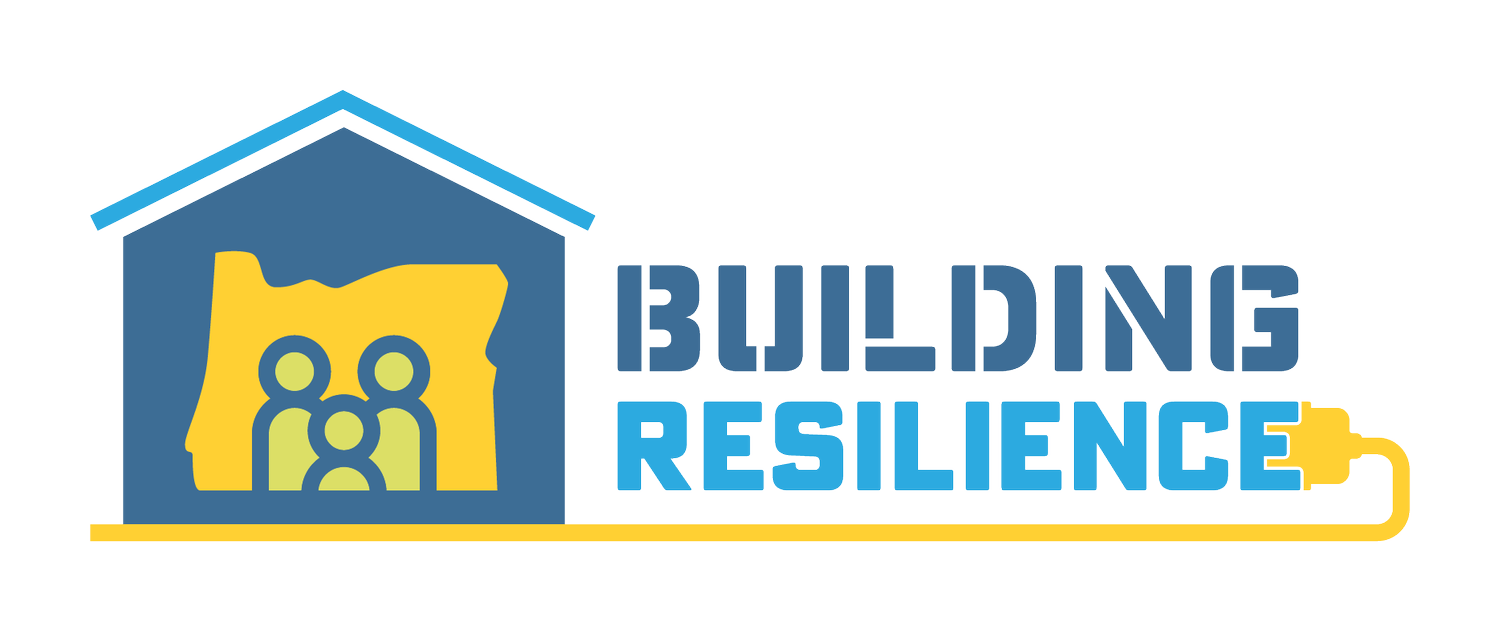Building Resilience
Campaign Guiding Principles
The following is a set of guiding principles agreed upon by the founding members of the Building Resilience Campaign and those joining in coalition together. The coalition has two major goals:
1) Pass ambitious legislation in Oregon to accelerate beneficial electrification for its health, affordability, and climate benefits, and increase climate resilience and energy efficiency in homes and buildings, including new and existing buildings.
2) Increase capacity, knowledge, experience, and skills within coalition organizations and ensure the priorities and needs of communities represented by the coalition organizations are reflected in the process and outcomes to further strengthen our movement for years to come.
The Coalition
Together we share a vision for making Oregon’s homes and buildings healthier, more affordable, resilient, efficient, safer, and all-electric to lower climate pollution, while creating good-paying jobs. The coalition will seek policies that put people at the center and prioritize those most harmed by the climate crisis and the high cost of fossil fuels such as low-income, rural, Black, Indigenous, and people of color in Oregon. A steering committee of Verde, Oregon League of Conservation Voters, Oregon Just Transition Alliance, Oregon Environmental Council, Rogue Climate, and Climate Solutions will anchor a growing coalition seeking to bring together diverse allies across Oregon from climate justice and public health, business and labor, faith and frontline communities, environmental, family, and youth organizations, and thousands of individual Oregonians.
The climate crisis is here and harming us all, with those who are already the most vulnerable bearing the worst burden. Our homes and buildings are the second largest source of climate pollution and our first line of defense against climate harms, like extreme heat and wildfire smoke. With Oregon on one of the most aggressive timelines in the nation to move to 100% clean electricity, there is more momentum than ever to focus on plugging our homes and buildings into that clean power by transitioning off of methane gas, oil, and other polluting energy.
Additionally, the need for affordable, resilient homes and buildings has never been greater, with soaring fossil fuel prices, worsening climate harms, and an extreme need to build new homes and buildings to accommodate our growing communities and businesses. We must prepare both existing and new buildings to better protect us.
Principles
By working together in coalition, we will grow power, increase knowledge, and build partnerships to make positive change. Here are the working principles we all agree to follow:
Equity and Inclusivity commitment. Throughout the coalition’s work we will bring diverse voices to the table to influence decision-making to create people-centered solutions through collaborative development. Low-income, environmental justice, and frontline communities of color, who are disproportionately vulnerable and burdened by climate harms and fossil fuels, will be represented fairly, authentically, and transparently. Emphasis will be on a statewide approach, valuing the experiences of people from rural and urban communities.
Information will be shared readily, transparently, and with as much regularity as capacity allows. Coalition partners will be consulted on campaign direction and policy development. The Steering Committee will have ultimate decision-making responsibility.
We will trust and seek knowledge from people most affected by the problems we’re seeking to solve. We will share expertise without dictating to people what they need. We will establish ourselves as trusted and accountable sources of information by being collaborative and credible.
We agree disagreement is not the same as conflict, and disagreement is natural in teamwork. We will seek to solve problems collaboratively, respecting people’s expertise and experiences.
The legislative arena is not under our control. We seek nimbleness as a value and pledge to share honestly about benefits and sacrifices when situations change, in order to make values-based decisions.
Values for Outcomes
For each piece of legislation we work on together, we will measure it against these values and principles:
Focus on improving the lives of people with tangible outcomes, prioritizing those underinvested in such as renters, low-income, rural, BIPOC, people with disabilities and other frontline communities.
Improve health and dramatically reduce climate and air pollution in line with Oregon’s climate targets by increasing energy efficiency and phasing out methane “natural” gas and other fossil fuels in homes and buildings and replacing them with clean energy.
Increase resilience to climate harms like extreme heat, wildfire smoke, and more intense storms by improving new and existing buildings.
Consider the workers doing the work on healthy, safe homes and buildings, workforce development among frontline communities, creating good local jobs, and where building materials come from.
Increase access to resources and knowledge for all in whatever programs result from these policies, and ensuring solutions do not only favor privileged people or come at the expense of marginalized communities.
Attention to implementation-- both in writing the laws and after they are passed. Remove barriers where feasible rather than creating more. Keep the voices of those most affected centered in both phases.
Do not harm community efforts to go further than state law. Ensure policies set a floor not a ceiling.
